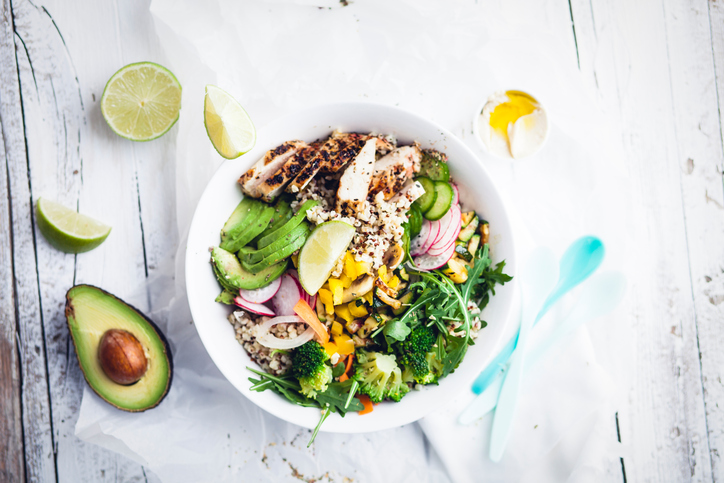
Learn about essential nutrients
These essential substances supply the body with energy
The body uses nutrients, chemical substances contained in food, for vital functions. The body needs some of these continuously to stay healthy.
Types of essential nutrients
- Water: hydrates, transports other nutrients, dissolves substances and controls body temperature. Remember to drink two litres of water every day in the form of glasses of water, infusions, fruit…
- Carbohydrates: these are our main source of energy and should account for 50% of calorie intake. They feed intestinal flora, help to store energy and make antibodies. They are found in cereals, potatoes, nuts, pulses and fruits.
- Proteins: these have a valuable defensive, digestive and hormonal role. They also transport nutrients and form part of the skin and muscles. We get them from pulses, eggs, cheese, meat and fish and they should account for 15% of daily calorie intake.
- Fats and lipids: they supply energy, protect the nerves and arteries and have a role in the vitamin absorption. Virgin olive oil, nuts and sunflower seeds are among the foods that contain healthy fats. They should account for 30% of the calories of a balanced diet.
- Vitamins: the body is not capable of synthesising vitamins, so we need to get them from vegetables, fruit, milk and plant drinks. They protect us from diseases, allow the organs to function correctly and are involved in metabolic processes like digestion and blood flow.
- Minerals: although they do not give us energy, they are nevertheless essential to the body. These include calcium or phosphorus, which help to manufacture enzymes and hormones. They also help to keep body fluids in balance and are vital for healthy bones, teeth and blood.
Make sure that you get all the nutrients your body needs for optimal health by eating a balanced, varied diet.
This post is also available in: Portuguese (Portugal)
